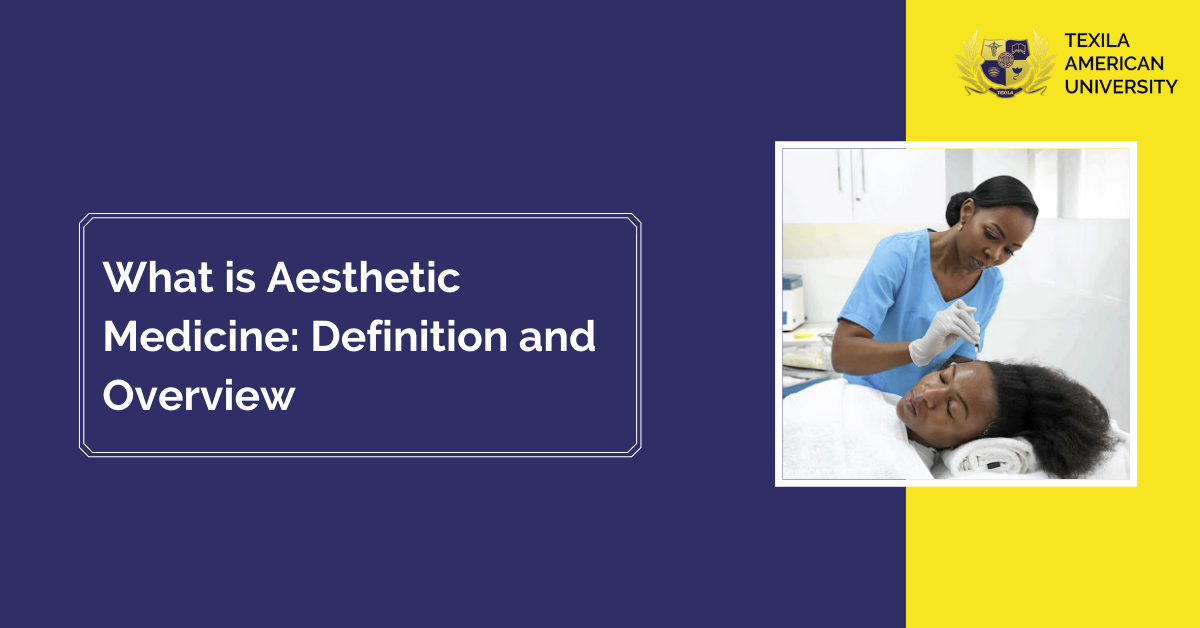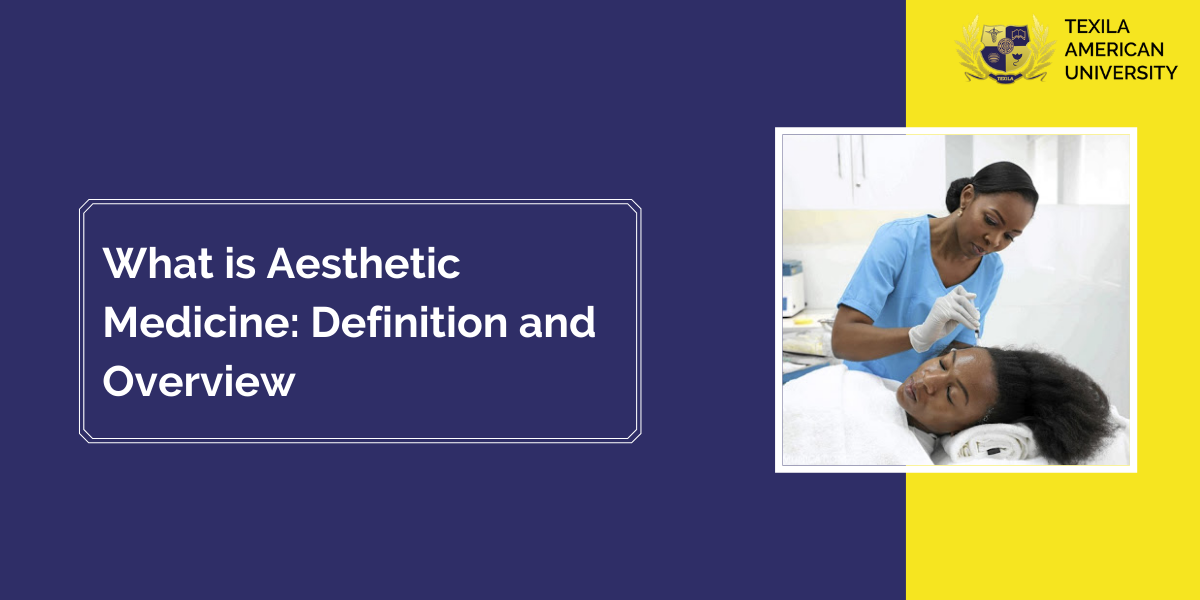Online Courses in Aesthetic Medicine
Aesthetic medicine deals with modifying the physical appearance of individuals. People tend to adjust their body shapes based on their professional requirements or after encountering trauma/disease conditions. With the advent of technology and increasing health awareness, people look for aesthetic modifications that help them reduce their risk of various diseases.
For example, obese and overweight individuals undergo liposuction to get rid of their extra fat and reduce their risk of cardiovascular disease. Celebrities prefer improving their body and face configurations through cosmetic interventions based on reconstructive surgeries and non-invasive procedures.
Physicians who prefer to specialize in aesthetic medicine help diagnose a range of skin conditions including, allergies, eczema, dermatitis, and acne. The online courses help the enrolled candidates to gain expertise in personalized skin treatment techniques.
Experts in aesthetic medicine proficiently administer analgesia, medications, and technology-supported medical procedures. Many professionals monitor the nutrition and overall fitness of individuals undergoing various treatments. They also work as counselors to understand and analyze the care requirements of individuals with aesthetic needs.
The health care specialists, nurses, physicians, and paramedical personnel get the liberty to join online courses in aesthetic medicine. The certificate helps these professionals administer its services across their geographic locations.
The certificate assists qualified professionals in providing anti-aging services and support to individuals with obesity and metabolic complications. They also assist patients to improve their skin laxity and modify their physical appearance through exercise, diet, and health monitoring. The certificate course in aesthetic medicine also increases the proficiency of the enrolled professionals in improving the treatment satisfaction, confidence, self-esteem, and positive self-views of patients.
The online certificate course helps medical doctors improve the physical appearance (of patients) with autoimmune diseases, allergies, hirsutism, hyperhidrosis, hormonal imbalances, obesity, diabetes, and cancers. The aesthetic medicine online courses for doctors help them supervise laser technicians, cosmetologists, clinical aestheticians, skincare technicians, and assistants to plastic surgeons. The graduate certificate increases the expertise of medical professionals in administering non-invasive cosmetic interventions. The aesthetic medicine courses for doctors help them critically evaluate the health risks (of patients) to inform their aesthetic support measures.
The online certificate course in aesthetic medicine for health care professionals helps them tailor the medical interventions based on patient concerns and treatment challenges. The online courses facilitate virtual education sessions via flexible learning interphase. The interactive live webinars give the feel of a regular interactive classroom session to the enrolled health care professionals.
The online certificate course in aesthetic medicine allows medical doctors and other health care professionals to interact with the faculty members at their convenience. The focused education sessions increase the knowledge and proficiency of enrolled professionals in medical procedures based on acne scars management and periorbital rejuvenation.
The online professional certificate course in aesthetic medicine fosters the patient safety management skills of doctors. This course also improves the skills, knowledge, and expertise (of doctors) in implementing aesthetic principles in medical practice. The certificate in aesthetic medicine enhances the knowledge base of doctors in the following skin management services and treatments.
- Basic-filler and dermal filler interventions
- Botulinum toxin (safe) administration
- Administration of topical skin treatments and chemical peels
- Facial anesthesia
- Treatments for facial aging
The online (advanced) certificate in aesthetic medicine promotes evidence-based interventions. It increases the expertise of medical doctors in the following services.
- Management of pigment conditions and vascular abnormalities via laser-based procedures
- Tattoo and hair removal interventions
- Advanced chemical peels
- Advanced dermal filler interventions
- Treatment of hyperhidrosis
- Advanced botulinum toxin interventions
- Sclerotherapy
- Treatment of anatomical anomalies
The online professional diploma in aesthetic medicine helps medical doctors administer the following patient care procedures.
- Body countering via non-invasive procedures
- Treatment of skin aging via bio-stimulators
- Aesthetic treatment of skin via thread lift
- Aesthetic management of rosacea and acne
- Skin tightening via radiofrequency therapy
- Skin resurfacing interventions
- Laser-directed treatment of pigment melasma
Why Medical Doctors Prefer Opting for Aesthetic Medicine Courses?
The aesthetic medicine courses for medical doctors give them an extra privilege to provide personalized aesthetic solutions to the patients. The physicians have the advantage and become aesthetic doctors after opting for one or more of the following aesthetic medicine courses.
- PGDCC (Post Graduate Diploma in Clinical Cosmetology)
- PGDC (Post Graduate Diploma in Cosmetology)
- PGDMT (Post Graduate Diploma in Medical Trichology)
These aesthetic medicine courses increase the expertise and knowledge of medical doctors in administering advanced cosmetic procedures. The extensive training sessions and clinical placements directed by the courses help medical doctors practice aesthetic medicine in specialized treatment centers.
The post-graduate diploma in clinical cosmetology helps medical doctors tailor aesthetic solutions based on individualized patient care requirements. The PGDCC course in aesthetic medicine follows the international guidelines and curricula based on the latest technology-oriented advancements in cosmetology.
The proficiency of PGDCC qualified doctors in clinical cosmetology helps them treat a range of skin conditions and manage the complex beautification requirements of the patients. This aesthetic medicine course also assists medical doctors to effectively integrate aesthetic (beautification) interventions with evidence-based medical practice. The quality skin treatments provided by aesthetic physicians with PGDCC reduce the recovery time and increase patient satisfaction to many folds.
The post-graduate diploma in clinical cosmetology provides hands-on training directions concerning aesthetic treatments to practicing physicians. This course in aesthetic medicine helps medical doctors administer integrated treatment relying on the principles concerning clinical cosmetology and aesthetic beauty interventions. The curriculum sessions make it highly befitting for medical doctors. They get the opportunity to study and perform the following aesthetic interventions within the tenure of the PGDCC course.
- Management of cellulite reduction device
- Acoustic wave therapy
- Cryo-lipolysis intervention
- Handling of other body tightening and contouring equipment
- Treatment of chromophores via laser techniques
- Laser-based hair removal interventions
- Administration of combination therapies based on skin resurfacing, phototherapy, fillers, and Botox
- Removal of skin tags and moles
- Micro-derma abrasion
- Cosmetic procedures directed by derma pen, derma roller, and derma stamp
The post-graduate diploma in cosmetology increases the competency of medical doctors in the following services.
- Advanced skin tightening and rejuvenation interventions
- Laser-directed skin therapy via intense pulse light and Q-switched lasers
- Skin management via infrared devices
- Mesotherapy for skin tightening and rejuvenation
- Microdermabrasion
- Skin treatments via radiofrequency and electrocautery procedures
- Aesthetic modification via skin conditioners
- Facial peeling
Medical doctors enrolled in the PDGC course get the opportunity to leverage their skills for establishing their private cosmetic establishments. The trained doctors hire and supervise cosmetologists to provide high-quality skin treatments in their self-owned settings.
The post-graduate diploma course in medical trichology enhances the expertise of medical doctors concerning the medical management of hair conditions. The PGDMT doctors expertly evaluate the hair system and provide scientific consultations for the medical management of hair loss and scalp infections. This aesthetic medicine course helps medical doctors to provide the following problem-focused and goal-oriented patient-centered services.
- Platelet-rich plasma skin therapy
- Hair transplantation
- Stem cell therapy
- Low-level laser therapy
- Hair bonding and weaving interventions
- Medical management of seborrheic dermatitis and folliculitis
- Medical consultation for trichotillomania, cicatricial alopecia, telogen effluvium, alopecia areata, and androgenic alopecia
Aesthetic Medicine Fellowship Programs
The fellowship programs in aesthetic medicine help the enrolled health care professionals to gain evidence-based knowledge. The registered medical practitioners desirous to enhance their career in aesthetic medicine prefer opting for these programs across accredited institutes. The following fellowship courses help the enrolled candidates adapt to the latest advancements.
- IFAAM (International Fellowship in Aesthetic and Anti-Aging Medicine)
FAM (Fellowship in Aesthetic Medicine)
- FMC (Fellowship in Medical Cosmetology)
The UIME (International Union of Aesthetic Medicine) and ISAM (Indian Society of Aesthetic Medicine) thoroughly recognize the fellowship programs in aesthetic medicine.
The FAM program helps health care professionals rapidly develop their skills in aesthetic medicine and initiate the cosmetic practice. The curriculum sessions of this course assist the enrolled candidates to enhance their expertise in the following cosmetic procedures.
- Medication therapy for hair loss management
- Follicular unit extraction
- Laser-supported skin rejuvenation therapy
- Chemical peeling
- Neck rejuvenation
- Skin lightening therapy via intravenous administration of glutathione
- Donor harvesting
- Skin graft preparation
The IFAAM program enhances the knowledge and skills (of health care professionals) concerning the cosmetic management of aging skin. The program modules help medical doctors expand their understanding of complex skin disorders and their evidence-based medical management. The interactive lectures and clinical training during this one-year course cover the following concepts.
- Minor cosmetic treatments
- Plasma medicine
- Cosmeceuticals
- Acne and its clinical management
- Targeted laser (skin) therapies
- Hair restoration practices and procedures
- Comprehensive hair anatomy
- Other concepts covered in the FAM program
The FMC program elaboratively covers various cosmetic interventions. At the same time, its comprehensive training programs help medical doctors to improve their expertise in a range of minor/major cosmetic interventions. The program modules majorly include the following concepts.
- Case presentations
- Intricate cosmetic procedures
- Laser safety guidelines
- Latest advancements in cosmetology
Other skin-related concepts, interventions, and services included in FAM, IFAAM, PGDCC, PGDC, and PGDMT courses


